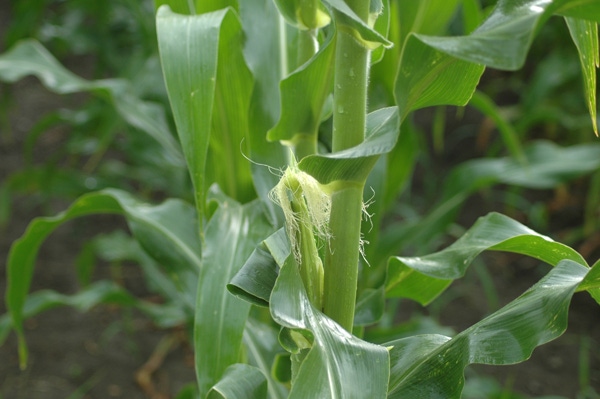July 11, 2014

Several factors affect corn pollination, including fertility and insects. Alex Johnson, sales agronomist at LG Seeds, offers tips to help your corn pollinate successfully, reminding growers to scout crops.
Fertility: From VT through Black Layer at R6, you don’t want your crop to run out of nutrients, especially Nitrogen and Phosphorous. Maximum yields come from plants that have the ingredients available!
Insects: Japanese beetles and Corn Rootworm adult beetles clip silks, and in large numbers can hurt yield. Scout your field to see if you have areas in the field that will pollinate later than the majority, or scattered late pollinators. Beetles may attack these late silking plants as they seek succulent silks to eat.
Scout: While you are looking at insect pressure and making a decision to spray or not, monitor foliar disease pressure and decide if you want to make a late season fungicide application to protect the plant during the grain fill stage and improve late season plant health and standability. Scouting will also alert you if to possible pollination problems so you can be informed about why fields may yield differently as a result and make educated decisions in your marketing and future management decisions.
Read more about corn pollination from LG Seeds.
 You might also like:
You might also like:
Tips for giant ragweed control
You May Also Like




